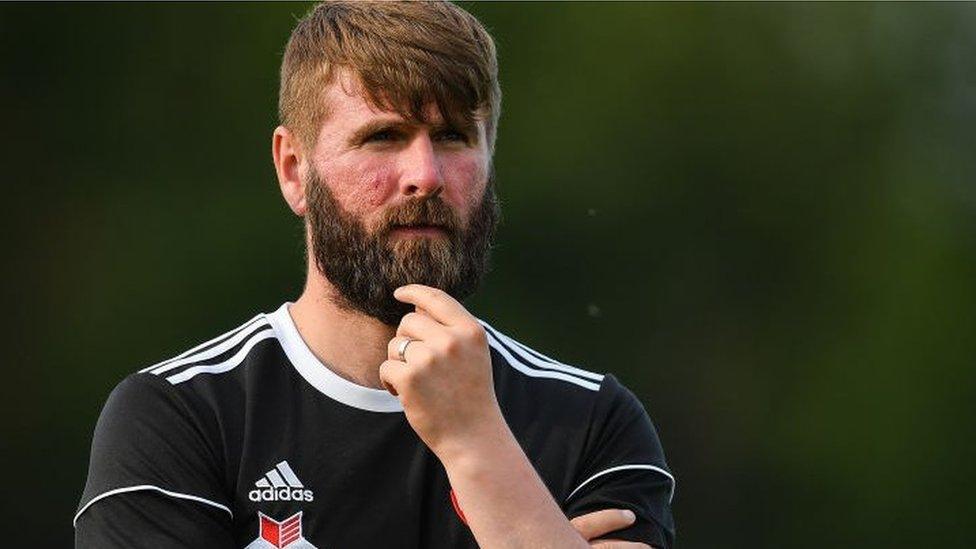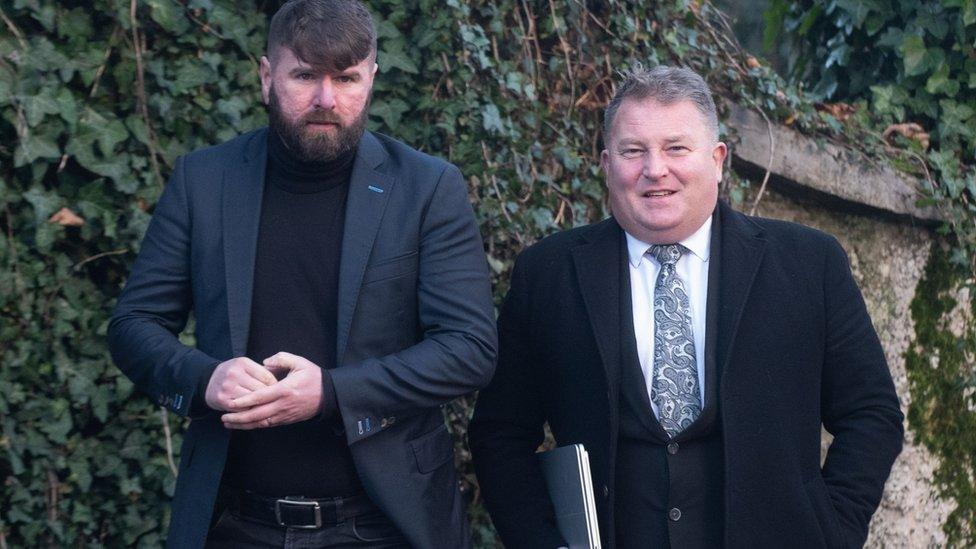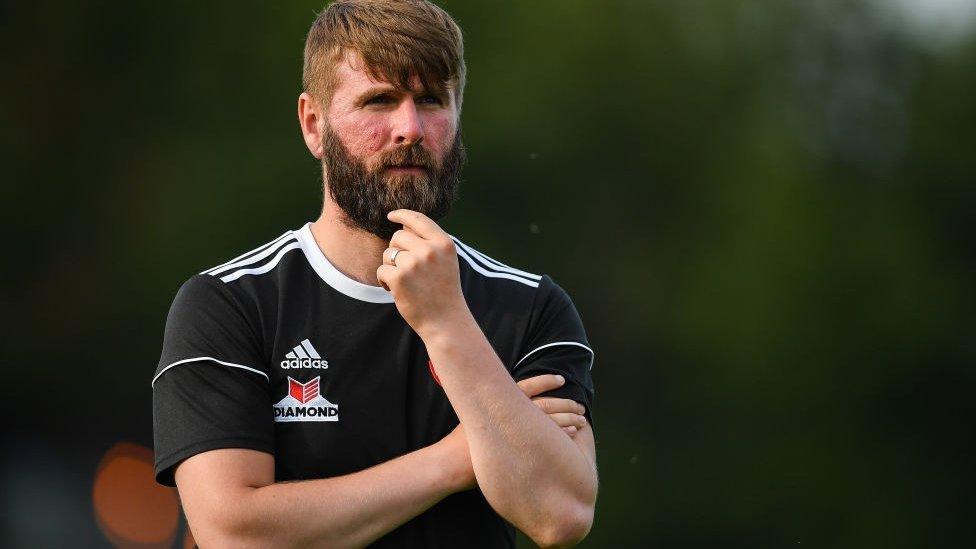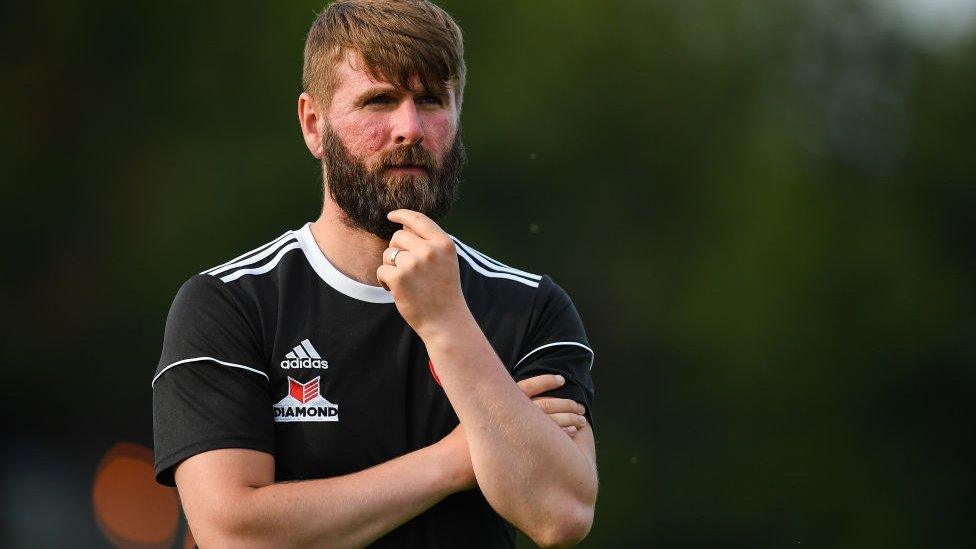Paddy McCourt: Court quashes sexual assault conviction
- Published

Paddy McCourt, who played for Celtic, Derry City and Northern Ireland, denied the charge against him
The former Celtic star Paddy McCourt has had his sexual assault conviction overturned.
Mr McCourt, of Wheatfield Court in Muff, Donegal, was found guilty in May of inappropriately touching a woman in a bar in Londonderry in January 2022.
The former international, who had denied the charge, was given a three-month suspended sentence in July.
On Tuesday, a court in Derry quashed that conviction after prosecutors offered no evidence.
Defence counsel Eoghan Devlin told the court there had been "a series of failures" in the case and said no one doubted the young woman had been assaulted but not by Paddy McCourt.
Judge Philip Babington granted the appeal. He reminded everyone that there had been a victim in the case.

Paddy McCourt and his solicitor Ciarán Shiels arriving at Bishop Street courthouse for the appeal
Paddy McCourt played for Celtic between 2008 and 2013 and also represented Northern Ireland 18 times, scoring two goals.
His solicitor, Ciarán Shiels, described his conviction as a "grave miscarriage of justice".
Speaking outside the court, Mr Shiels said the former footballer had been "very shabbily treated by the PSNI in this city".
A solicitor for ex-Celtic player Paddy McCourt criticises police after quashed conviction.
"He should never have been charged, in relation to this case, never mind prosecuted," the solicitor said.
He added: "This man should never have been charged let alone been put through the process and the ordeal he has had to face for the guts of two years."
A police spokeswoman said the PSNI would not be issuing further comment.
In a statement, the Public Prosecution Service (PPS) said it had a duty to keep all decisions under continuous review.
"In light of evidential issues relating to key witnesses which arose after the conviction at the lower court, the prosecution reviewed the position in the case," the PPS spokeswoman said.
"Whilst it was considered that the prosecution had been properly brought in the first instance, it was determined that in view of these evidential issues, the test for prosecution was no longer met."
The spokeswoman added that all decisions by the PPS were taken "strictly impartially, independently and fully in line with the PPS code for prosecutors".
Related topics
- Published10 July 2023

- Published31 May 2023
